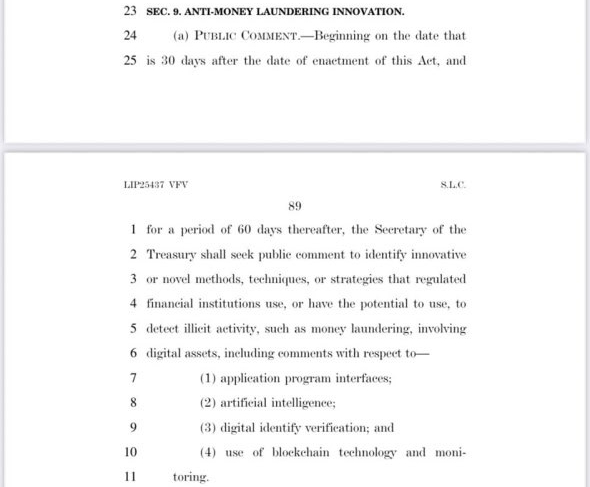
GENIUS Act: Blockchain Joins the Fight Against Crime
Surprise inside the GENIUS Act - a U.S. bill aimed at creating a federal framework for regulating payment stablecoins: there's a section titled “Anti-Money Laundering Innovation.”
And guess what’s listed as an innovation? Blockchain technology.
To me, that’s a tectonic shift.
- Until now, governments have accused cryptocurrencies of enabling money laundering.
- But here, blockchain - the very backbone of crypto - is officially recognized as a tool for fighting it.
Anyone who actually uses crypto has known this for years.
Money laundering thrives in the shadows - opaque banking records, falsified statements, hidden transfers. Public blockchains are the opposite: everything is transparent and verifiable.
The next logical step for governments? Recognizing that the only truly effective anti-money laundering blockchain infrastructure is one where:
- anyone can become a miner or validator,
- anyone can write to the ledger,
- and all transaction data is available to anyone who wants to look.
You can't hide anything in a system like that - and you can't fake it either.
Even this first step - the GENIUS Act - is a big deal. If it passes in its current form, it could reshape public perception of stablecoins… and eventually of crypto as a whole. A bright future may be closer than we think.
👉 Rabbit.io - Crypto swaps with no tricks and no shady schemes.













